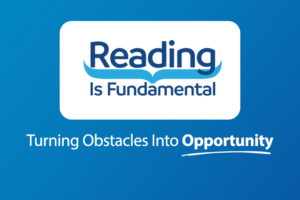Sarah Ford | June 10, 2015
Florida student feels hopeless, humiliated because of school’s punitive culture
“I don’t have rights,” the 15-year-old boy tells me.
His mother begins to sob uncontrollably. She sees the hopelessness in her son’s eyes.
Sammy* has been suspended so often for vague violations like “disruptive behavior” and “misconduct” that he’s missed more than 30 percent of the school year. He’s one of thousands of students we represent in class action complaints challenging racial inequality in five Florida school districts.
The suspensions have taken away his enthusiasm for learning and made him and his family feel powerless.
I can’t blame him for feeling this way. I’ve been there myself.
Because of instability in my home, I attended seven different schools by the time I reached middle school. One of my earliest memories of school was being suspended in the first grade because I wrote an improper word on my homework. After missing a full week, I spent the rest of the year trying to catch up. This led to more behavioral problems and suspensions.
My first year in high school, I failed nearly all my classes. Because I was deprived repeatedly of my right to an education through suspension and received no positive reinforcement at home, I lost in school. I had more than 50 absences that year. Some days I preferred to stay home instead of spending an hour outside my school waiting for 1,500 students to go through metal detectors.
Finally, by the third year of high school, I was expelled and had to attend an alternative school. I’ll never forget how devastating it was. Combined with frequent moves between family members because both my parents were incarcerated, my school kicking me out made me feel worthless and unwanted. I felt thrown away, left for dead and given up on.
The alternative school was simply a warehouse for troubled kids before they drop out. After two days of classes that were years below my level, with ancient books the regular high school no longer saw fit to use, I dropped out. The degradation by the school pushed me to the point that I no longer felt welcomed.
So, as one formerly troubled African-American kid to another, I can relate to Sammy.
He describes the humiliation of being segregated with the “bad kids” in portable classrooms in a distant corner of his high school. He’s forced to eat lunch in his aluminum-crate classroom because he’s forbidden from other parts of campus and restricted from interacting with 95 percent of the other students. He is not allowed to take elective courses, and if he dares to stay after school for a club meeting or football game, he’ll be arrested for trespassing.
For him, school is a place where he is treated like a criminal. It has become a ritual for him to be searched by police officers on campus; his hands are sniffed for the scent of marijuana.
But he doesn’t deserve all of the blame.
Many school districts are adopting incredibly harsh disciplinary policies that needlessly push children out of school and into the criminal justice system, primarily for minor, nonviolent misbehavior. This phenomena is commonly referred to as the “school-to-prison pipeline.”

Get Resources and Insights Straight To Your Inbox
Explore More Articles
Workplace Fundraising + Volunteering Summit (April 2nd and 3rd, 2025)
Join us in attending this virtual summit! The America’s Charities team is joining up with other leading voices in the workplace giving space for a…
Read ArticleThe Time to Act is Now
The results of the 2024 National Assessment of Educational Progress (NAEP) are in, and the findings are, in a word, heartbreaking. This assessment serves as…
Read ArticleOpen Position: Non-Profit Account Manager, Employee Assistance Funds & Scholarships (Remote – Full Time)
We are professional, agile, customer-centric and our goal is to inspire employees and organizations to support causes they care about. We help nonprofits fundraise unrestricted,…
Read ArticleGet Resources and Insights Straight To Your Inbox
Receive our monthly/bi-monthly newsletter filled with information about causes, nonprofit impact, and topics important for corporate social responsibility and employee engagement professionals, including disaster response, workplace giving, matching gifts, employee assistance funds, volunteering, scholarship award program management, grantmaking, and other philanthropic initiatives.




